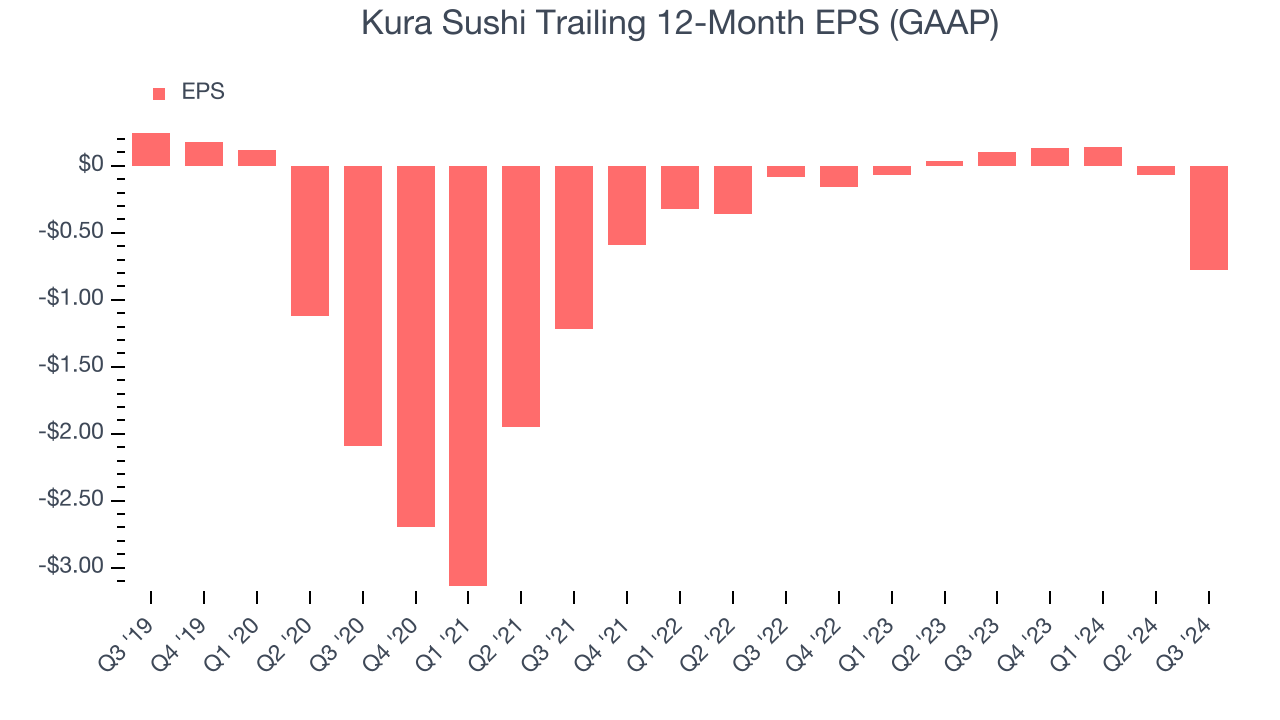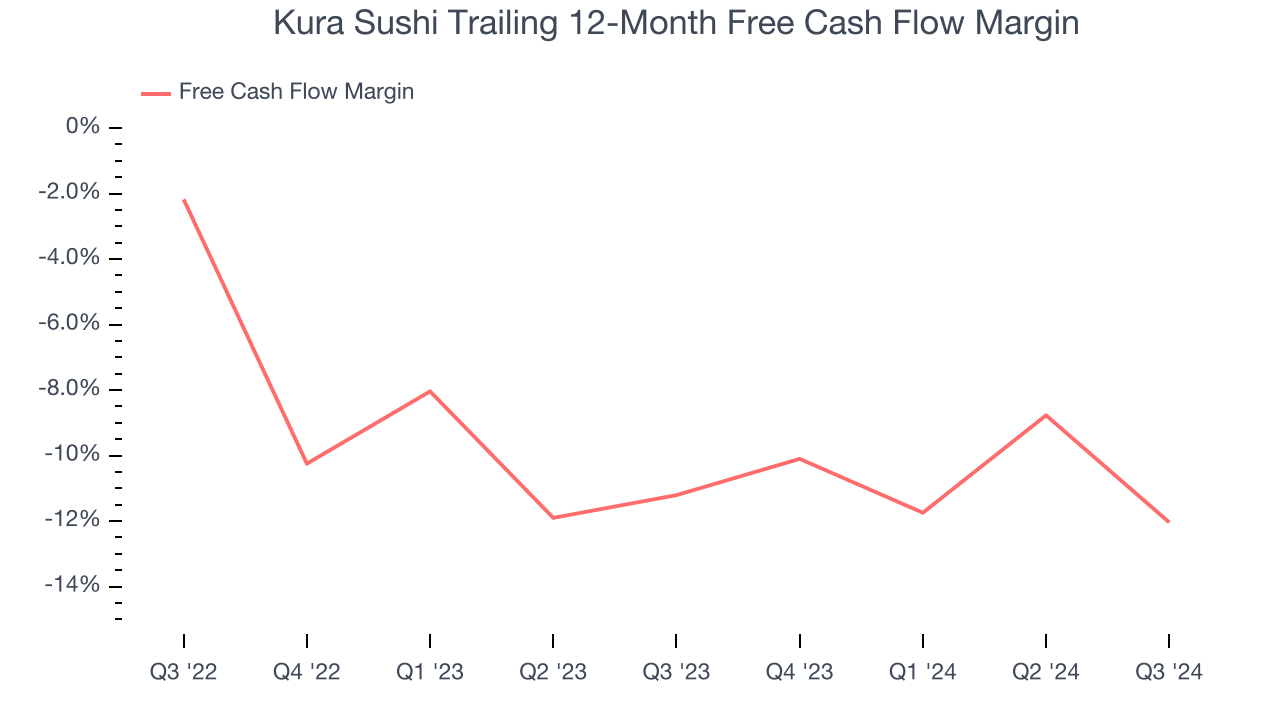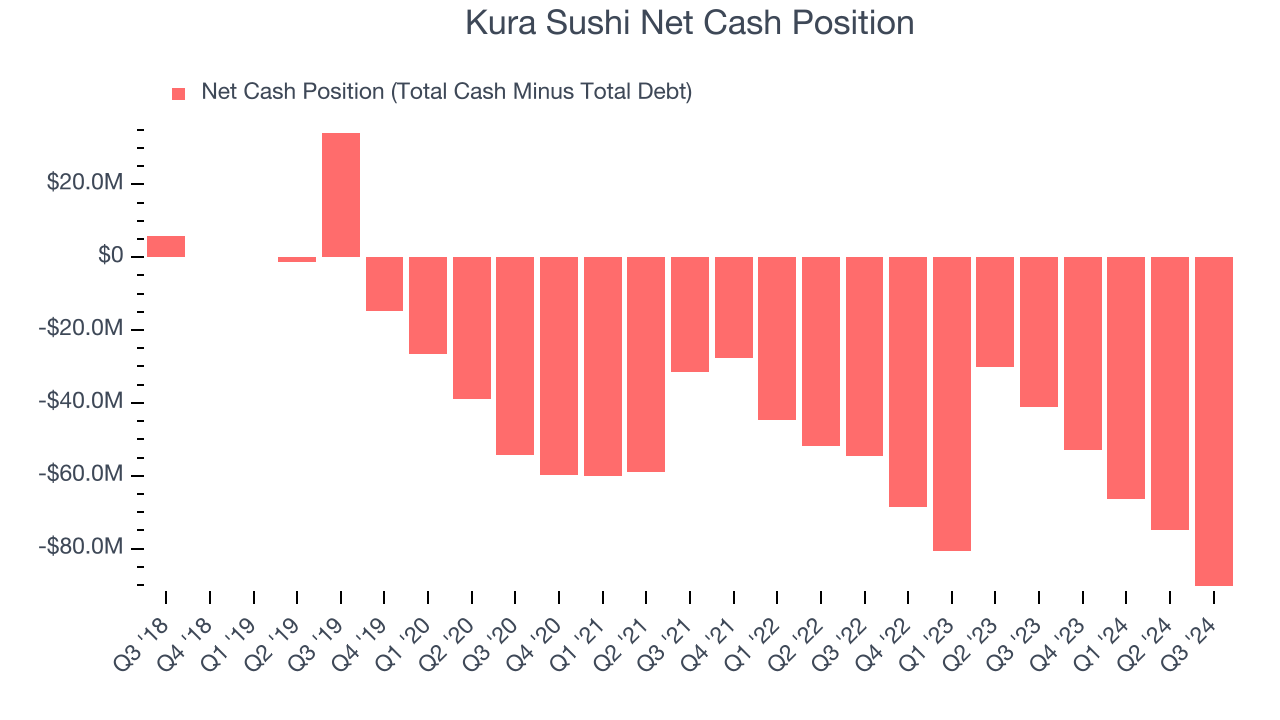
Kura Sushi currently trades at $101.71 and has been a dream stock for shareholders. It’s returned 297% since December 2019, more tripling the S&P 500’s 91.2% gain. The company has also beaten the index over the past six months as its stock price is up 23% thanks to its solid quarterly results.
Is there a buying opportunity in Kura Sushi, or does it present a risk to your portfolio? Check out our in-depth research report to see what our analysts have to say, it’s free.We’re glad investors have benefited from the price increase, but we're cautious about Kura Sushi. Here are three reasons why we avoid KRUS and a stock we'd rather own.
Why Is Kura Sushi Not Exciting?
Known for its conveyor belt that transports dishes to diners, Kura Sushi (NASDAQ:KRUS) is a chain of sushi restaurants serving traditional Japanese fare with a touch of modernity and technology.
1. EPS Trending Down
We track the long-term change in earnings per share (EPS) because it highlights whether a company’s growth is profitable.
Sadly for Kura Sushi, its EPS declined by 38.7% annually over the last five years while its revenue grew by 29.9%. This tells us the company became less profitable on a per-share basis as it expanded.

2. Cash Burn Ignites Concerns
Free cash flow isn't a prominently featured metric in company financials and earnings releases, but we think it's telling because it accounts for all operating and capital expenses, making it tough to manipulate. Cash is king.
Over the last two years, Kura Sushi’s capital-intensive business model and large investments in new physical locations have drained its resources, putting it in a pinch and limiting its ability to return capital to investors. Its free cash flow margin averaged negative 11.7%, meaning it lit $11.67 of cash on fire for every $100 in revenue.

3. Short Cash Runway Exposes Shareholders to Potential Dilution
As long-term investors, the risk we care about most is the permanent loss of capital, which can happen when a company goes bankrupt or raises money from a disadvantaged position. This is separate from short-term stock price volatility, something we are much less bothered by.
Kura Sushi burned through $28.64 million of cash over the last year, and its $141.4 million of debt exceeds the $50.99 million of cash on its balance sheet. This is a deal breaker for us because indebted loss-making companies spell trouble.

Unless the Kura Sushi’s fundamentals change quickly, it might find itself in a position where it must raise capital from investors to continue operating. Whether that would be favorable is unclear because dilution is a headwind for shareholder returns.
We remain cautious of Kura Sushi until it generates consistent free cash flow or any of its announced financing plans materialize on its balance sheet.
Final Judgment
Kura Sushi isn’t a terrible business, but it doesn’t pass our quality test. With its shares outperforming the market lately, the stock trades at 87.8× forward EV-to-EBITDA (or $101.71 per share). This multiple tells us a lot of good news is priced in - you can find better investment opportunities elsewhere. We’d recommend looking at Microsoft, the most dominant software business in the world.
Stocks We Like More Than Kura Sushi
The Trump trade may have passed, but rates are still dropping and inflation is still cooling. Opportunities are ripe for those ready to act - and we’re here to help you pick them.
Get started by checking out our Top 6 Stocks for this week. This is a curated list of our High Quality stocks that have generated a market-beating return of 175% over the last five years.
Stocks that made our list in 2019 include now familiar names such as Nvidia (+2,691% between September 2019 and September 2024) as well as under-the-radar businesses like United Rentals (+550% five-year return). Find your next big winner with StockStory today for free.
